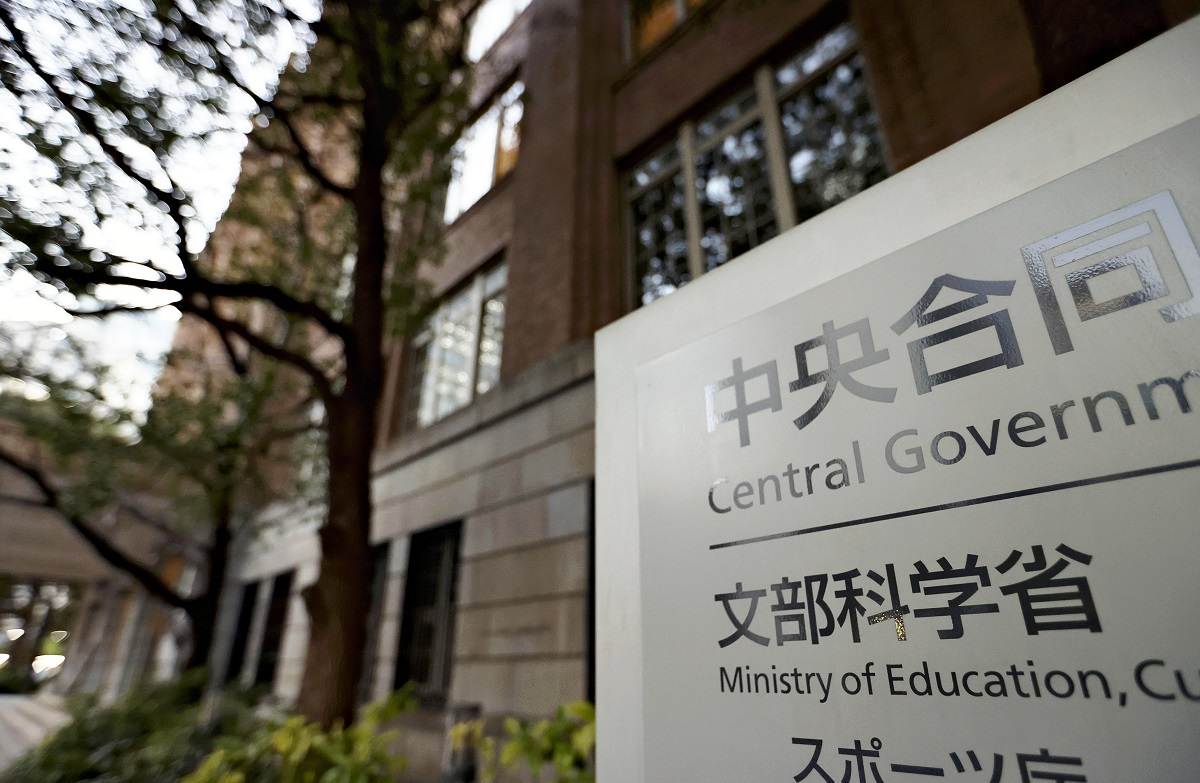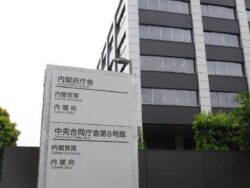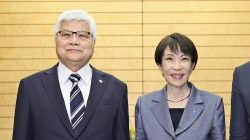
The Education, Culture, Sports, Science and Technology Ministry
18:03 JST, January 23, 2024
The education ministry will strengthen support for graduate schools that address such social issues as artificial intelligence and the United Nations’ Sustainable Development Goals in collaboration with their overseas counterparts. The ministry hopes to foster globally competitive talent with a background in the humanities and social sciences who can use their knowledge for practical applications.
Graduate schools in these academic fields, which include law and literature, are often said to be less connected to the real world compared to science-related graduate schools, and therefore less responsive to the needs of society.
In recent years, there has been a growing need for research on legal systems and ethics for such social issues as AI, wellbeing and ethical consumption, where shoppers buy eco-friendly or socially responsible products.
However, liberal arts research at grad schools tends to focus on themes that are deep but not broadly applicable, making it difficult to work with industry.
Given the situation, the Education, Culture, Sports, Science and Technology Ministry began this academic year to work with graduate schools and industry in Japan to support grad schools in the liberal arts that take up social issues. With this support, graduate schools for Ryukoku University, the University of the Ryukyus and Kyoto Bunkyo University will begin a joint educational and research program from the 2025 academic year, aiming to develop human resources to solve local issues.
From academic year 2024, support will be extended to graduate schools that network with overseas universities and international organizations to study the latest social issues.
The ministry will help graduate schools facilitate exchanges of students and teachers with schools abroad, hold joint presentations at international conferences and write more papers in foreign languages. Up to ¥40 million in yearly subsidies will be provided over a six-year period. The ministry will recruit four schools for the next academic year.
Behind the push to support graduate schools in the humanities and social sciences is the fact that few students in the fields advance to postgraduate programs. While around 40% of students studying science or engineering go to graduate school, only 4% of humanities students and 2% of social sciences majors seek a master’s or PhD. These are paltry figures even in comparison with overseas schools, and this has meant few Japanese staff working for U.N. organizations, which generally require a master’s degree.
“We want to improve the research environment so that Japan’s knowledge can be used to address the complex issues facing the international community today,” a ministry official said.
Top Articles in Society
-

JAL, ANA Cancel Flights During 3-day Holiday Weekend due to Blizzard
-

Man Infected with Measles May Have Come in Contact with Many People in Tokyo, Went to Store, Restaurant Around When Symptoms Emerged
-

Australian Woman Dies After Mishap on Ski Lift in Nagano Prefecture
-

Foreign Snowboarder in Serious Condition After Hanging in Midair from Chairlift in Nagano Prefecture
-

Record-Breaking Snow Cripples Public Transport in Hokkaido; 7,000 People Stay Overnight at New Chitose Airport
JN ACCESS RANKING
-

Univ. in Japan, Tokyo-Based Startup to Develop Satellite for Disaster Prevention Measures, Bears
-

JAL, ANA Cancel Flights During 3-day Holiday Weekend due to Blizzard
-

Japan Institute to Use Domestic Commercial Optical Lattice Clock to Set Japan Standard Time
-

China Eyes Rare Earth Foothold in Malaysia to Maintain Dominance, Counter Japan, U.S.
-

Man Infected with Measles May Have Come in Contact with Many People in Tokyo, Went to Store, Restaurant Around When Symptoms Emerged






















